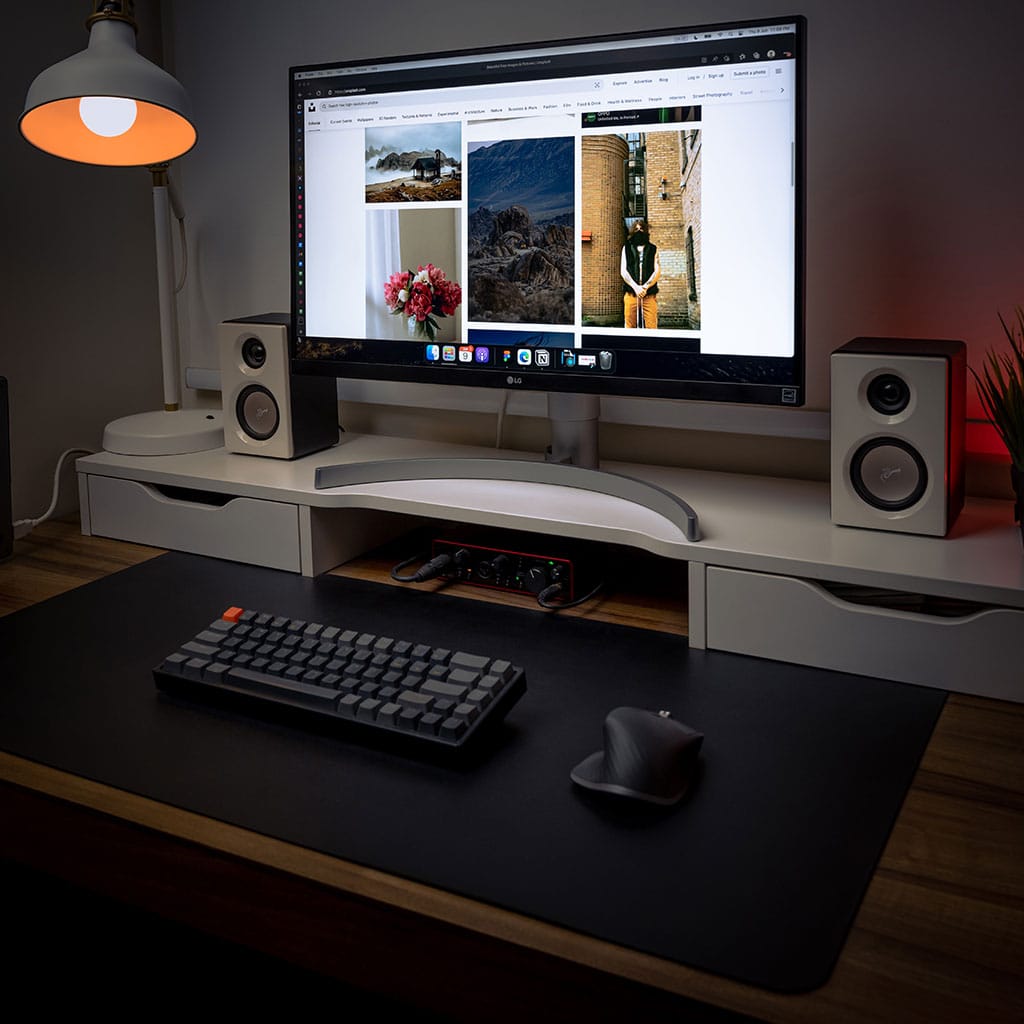Should I Buy an iMac or a Pc?
Should I Buy an iMac or a Pc?
In the ever-evolving landscape of desktop computers, making the decision between an iMac and a PC can be challenging. This article aims to compare the key features, performance, software ecosystems, and personal preferences to help you determine whether an iMac or a PC is the better choice for your specific requirements and preferences.
What are the pros and cons of using a PC versus a Mac?
Both PCs and Macs have advantages and disadvantages. For those who value flexibility, PCs may be the better choice since they are more customizable and offer more opportunities for upgrades than Macs do. Even though Macs can serve as an excellent tool for creatives, due to their strength in photography, graphics design, and other art-related works, they still lack customization options. This means that if you want to upgrade a machine with more memory or storage space, your only option is to buy another one from Apple.
On the other hand, PCs are easier to upgrade yourself. With some basic knowledge of how components interact and fit together, anyone can choose components on their own to customize a PC built with exactly the specs needed for certain tasks. For example, someone interested in gaming could install a higher-end graphics card or processor when creating a gaming PC build; someone looking into graphic design or digital arts could add additional RAM for faster rendering times. With PCs there is much more opportunity to customize builds exactly the way desired without having to stick with whatever is offered by Apple with Mac computers.
Advantages of PCs
PCs offer several advantages that make them a popular choice for many users:
Hardware Customization: One of the significant advantages of PCs is the extensive hardware customization options available. Users can select components individually, allowing for a tailored setup that meets specific needs and budgets. From processors and graphics cards to memory, storage, and cooling solutions, the ability to customize hardware provides flexibility and the potential for high-performance configurations.
Cost Flexibility: PCs offer a wide range of price points, making them accessible to a broader audience. There are options available to suit various budgets, from entry-level systems to high-end gaming rigs or workstation-class machines. Additionally, the competitive market for PC components often results in more competitive pricing, giving users the ability to find better deals and potentially save money.
Software Compatibility: PCs have a vast software ecosystem, with compatibility for a wide range of applications, including both commercial and open-source software. From productivity suites and creative tools to gaming platforms and specialized software, the availability of software for PCs is extensive. Users also have the freedom to choose different operating systems, such as Windows operating, Linux, or even dual-boot setups, to align with their preferences and software requirements.
Gaming Performance: PCs are well-regarded for their gaming capabilities. The ability to customize hardware, access a wide range of gaming peripherals, and enjoy the extensive library of PC games makes it a preferred simple choice for gamers. PCs often offer more powerful graphics cards, faster processors, and options for high-refresh-rate monitors, providing superior gaming experiences with higher frame rates, better graphics fidelity, and the ability to customize graphical settings.
Upgradeability and Expandability: PCs offer greater opportunities for upgrades and expansion. Users can easily swap out or upgrade individual components over time, such as adding more RAM, increasing storage capacity, or upgrading the graphics card. This flexibility allows users to adapt their systems to evolving needs, prolonging the lifespan and performance of their PCs.
Broad Peripheral Compatibility: PCs offer broad compatibility with various peripherals and accessories, including monitors, keyboards, mice, printers, and more. The extensive range of connectivity options, such as USB, Thunderbolt, and HDMI, ensures that users have the freedom to choose from a wide array of peripherals, regardless of the brand or manufacturer.
IT and Enterprise Support: PCs are commonly used in business and enterprise environments, resulting in well-established support systems and IT infrastructure. This can be advantageous for organizations, as there is a larger pool of IT professionals with expertise in PC hardware and software, making troubleshooting and maintenance more accessible.
Advantages of iMac
Mac computers offer several advantages that make them a compelling choice for many users:
Seamless Integration: Macs are known for their seamless integration of hardware and software. Apple designs both the hardware and macOS, the operating system specifically tailored for Macs. This integration results in a stable and optimized system that delivers a smooth user experience. The synergy between the hardware and software allows for efficient performance, enhanced security, and better overall reliability.
User-Friendly Interface: macOS provides a user-friendly interface that is intuitive and easy to navigate, making it accessible to users of all skill levels. The consistent design language, cohesive ecosystem, and well-thought-out features enhance productivity and streamline workflows. Macs also offer built-in accessibility features to accommodate diverse user needs, ensuring a inclusive computing experience.
High-Quality Hardware: Macs are renowned for their premium build quality and attention to detail. From the sleek aluminum enclosures to the crisp larger displays and precision keyboards, Apple takes pride in crafting aesthetically pleasing and durable hardware components. The use of quality materials and meticulous engineering ensures that Macs not only look great but also offer longevity and reliability.
Optimized Software Ecosystem: Macs benefit from a curated software ecosystem. The Mac App Store provides a vast selection of applications, including productivity tools, creative software, and multimedia applications. The software available for macOS is often optimized for Mac hardware, resulting in better performance and stability. Apple’s first-party applications, such as Pages, Keynote, and Final Cut Pro, are highly regarded for their functionality and seamless integration with the operating system.
Enhanced Security: macOS has a strong reputation for security. Apple prioritizes user privacy and data protection, implementing advanced security features such as FileVault encryption, Gatekeeper app verification, and system-wide privacy controls. Additionally, the curated software ecosystem and stringent app review process in the Mac App Store help mitigate the risk of malware and ensure a safer computing environment.
Reliable Customer Support: Apple is known for its customer support and service. Apple Store and authorized service providers offer dedicated support for Macs, making it easy to access assistance, repairs, and warranty services. Apple’s commitment to customer satisfaction and their extensive support network contribute to a positive ownership experience.
Creative Capabilities: Macs have long been favored by creative professionals due to their robust multimedia capabilities. Whether it’s graphic design, video editing, audio production, or photography, Macs offer industry-leading software and hardware options that cater to the demanding needs of creative workflows. Applications like Final Cut Pro, Logic Pro, and Adobe Creative Cloud are optimized for macOS, providing powerful tools for creative endeavors.
Mac vs PC ecosystems
When it comes to the Mac vs PC ecosystems, Apple’s integrated experience offers a notably seamless user experience from one device to the next. With Apple–from your MacBook to iPad and even your iPhone–you can start work on any device and then take it UP where you left off with the others. This level of interoperability among the different devices is truly impressive and sets Apple devices apart from their PC counterparts.
However, Windows PCs do have an advantage in terms of affordability. Windows machines are often much less expensive, even if you’re going for a high-end setup, than what you’d find with Apple. Plus, there are some very robust Windows laptops available on the market that rival options from Apple. But if having the convenience and familiarity of an entire ecosystem—all running within the same interface—is important to you, then investing in a Mac might be worth it.
Gaming
PCs are dominating the gaming industry due to their ability to support various external devices and form factors, making them the go-to for gamers everywhere. Both casual and competitive players alike must use a PC if they want access to any online or console games. This means that Mac users will have to either download extra software with more instability or borrow someone else’s computer in order to partake in popular games like Halo: The Master Chief Collection, Overwatch, Red Dead Redemption 2, PUBG and Apex Legends. Plus there exists a limited library of games on Steam available for Mac which simply can’t compare to what PCs can provide clubbing Mac users out of most gaming sessions. Furthermore, newer operating systems on Mac have brought updates limiting the possibility of playing hundreds of games that PCs get away with running very easily. All this clearly shows why PCs reign supreme in terms of gaming applications – giving rise to an intensely active market.





You must be logged in to post a comment.